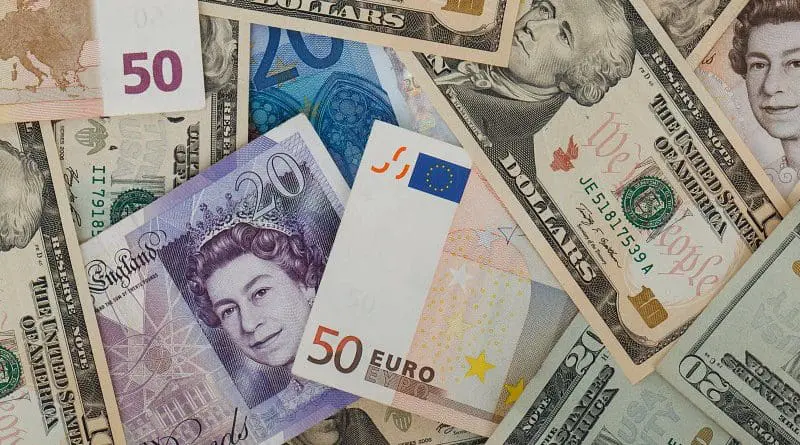How Is The Global Financial System Contributing To Erosion Of World Order? – OpEd
By Komal Khan
Currencies and world order are closely interconnected and play a significant role in shaping the global economy and facilitating international trade and finance. The world order, in turn, influences the value and use of different currencies.One important aspect of the relationship between currency and world order is the dominance of certain currencies in the global financial system. Similar to the Euro, the Chinese Yuan’s increasing use in international transactions reflects China’s growing economic power and its efforts to transform the US led Word Order in the Asia-Pacific.
The use of different currencies in Asia reflects political and economic alliances and the balance of power between developed economies and regional states, particularly China, India, and Russia. BRICS is a significant addition to this club.
The countries of Brazil, Russia, India, China, and South Africa are endeavoring to establish themselves as advocates for the Global South, offering a different paradigm to the G7. The BRICS group is collaborating to create a unified currency in an effort to move away from the US dollar and challenge America’s supremacy. This move coincides with Moscow and Beijing’s push for de-dollarization as a response to Western sanctions. Since the onset of the Russian-Ukrainian war, the BRICS nations have been increasingly distancing themselves from the Western block. India, Brazil, South Africa, and China have abstained from participating in sanctions against Russia. This has become increasingly evident, particularly with the record-high levels of trade between India and Russia, as well as Brazil’s reliance on Russian fertilizer.
Being the trend setter, China has been pushing for de-dollarization in a number of ways in order to reduce its dependence on the US dollar and increase the use of its own currency, the Chinese yuan, in international trade and finance. Internationally and with a focus on Asia, China has been seeking currency swap agreements and trade settlements in yuan. Furthermore, China’ drive for the Cross-Border Interbank Payment System (CIPS) allowing direct exchange of currencies and pushing for the inclusion of the yuan in the International Monetary Fund’s (IMF) Special Drawing Rights (SDR) basket are significant in this regard. Chinese increased investment in gold as an alternative asset is significant for Chinese soft power influence in the global South and for economies under the US sanctions.
Similarly, despite being a partner to the US in anti-China competition, India has also been pushing for de-dollarization, although to a lesser extent than China. India has been promoting the use of the rupee in international trade by signing currency swap agreements with other countries, such as Japan, UAE, and South Asia, particularly Sri Lanka.The Indian government has already launched various schemes to encourage the purchase of gold, such as the Gold Monetization Scheme and Sovereign Gold Bonds.
De-dollarization is challenging US order in Asia-Pacific. It is reducing the role of the US dollar in international trade, becoming primary reserve currency, decreasing the demand for US Treasury bonds.
Notably, by challenging the dominance of the US in the global financial and shifting economic power away from the US, order transformation is taking place in the Asia-Pacific. As Asian countries become more economically integrated and less dependent on the US, the balance of political and economic power in the region is shifting away from the US. De-dollarization in Asia is part of a broader trend of multipolarity in the global financial system, with the rise of new economic powers challenging the dominance of the US and the US led World Order. The order in Asia is crucial to the overall world order because Asia is the world’s most populous and economically significant region. The balance of power in Asia can influence global politics, security, and economic dynamics.
Several major powers are located in Asia, such as China, Japan, India, and Russia. These countries have significant military capabilities and economic influence, and their actions can have significant impacts on the rest of the world. For example, China’s economic rise and its military modernization have altered the balance of power in Asia and contributed to the country’s growing influence globally. Furthermore, Asia is also home to several ongoing geopolitical issues, including tensions on the Korean Peninsula, territorial disputes in the South China Sea, and the ongoing conflict between India and Pakistan over Kashmir. These issues have the potential to escalate into larger conflicts and create instability that could spill over into other parts of the world.
Therefore, the order in Asia is critical to the overall stability of the world order. If there is instability, competition or conflict in Asia, it can have far-reaching consequences for the rest of the world.
Komal Khan is a researcher at Strategic Vision Institute, a think tank based in Islamabad.

